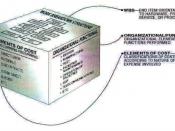Contract management is the discipline that includes all of the processes necessary to develop, document, approve, monitor, and close-out formal business agreements (Ledford, 2007). The first thing we need to look at when trying to decide which contract would be easiest or most difficult for Acme to manage are the different types of contracts. A contract is an agreement entered into by two or more parties and the agreement can be enforced in a court of law (Kerzner, 2006). Contracts usually fall into one of three categories:â¢Fixed-priced or lump-sum contracts- this is a fixed price for a well-defined product, though incentives or bonuses can be included for exceeding objectives or scheduled targets.
â¢Cost-reimbursable contracts- this involves payment to the seller for their actual costs, plus a fee typically representing seller profit. There are three main types of cost-reimbursable contracts including; cost-plus-fee (CPF) or cost-plus percentage of cost (CPPC), cost-plus-fixed-fee (CPFF), and cost-plus-incentive-fee (CPIF).
â¢Time and material (T&M) contracts- these are a hybrid type of contractual arrangement that contains aspects of both cost-reimbursable and fixed-price arrangements (Project Management Institute, 2004).
The easiest contract for Acme would be the fixed-price contract. Acme can form a fixed-price contract to get the exact order for a specific item by a specified date for a set price. Some advantages to using this type of contract include;â¢Firm assurance of ultimate costâ¢Informed quickly if there are delays and extra costs due to changesâ¢Minimum owner follow-up on workâ¢Maximum incentive for quickest completion at lowest costâ¢Minimal auditing by owner's staff (Kerzner, 2006).
The downfall of this type of contract would be the amount of time to develop, knowledge of exact services needed before the contract is awarded, and it may cause cost increases due to bidding.
The most difficult type of contract for Acme would be cost-reimbursable...


